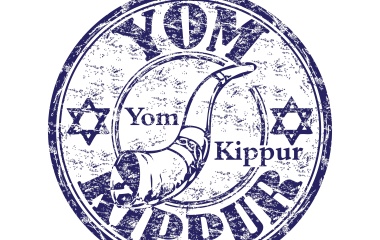
Integral to the teshuva process is the act of vidui, confession. One can intellectually know one has done something wrong; one can even feel terrible about it. But unless and until one verbalizes that one has sinned—and for sins against our fellow man, vidui should be done publicly (Hilchot Teshuva, 2:5)—teshuva cannot be complete. It is precisely because it is so hard to admit a wrong, specifically stating what one did wrong with no ifs, ands, or buts, that it is so necessary. Only by doing so can the fact that we sinned fully sink in and move us onto a path where our resolve not to repeat such a sin stands a chance.
“Our Sages taught: How does one confess? He says aviviti, pashati, chatati, these are the words of Rabbi Meir. Our Sages say…rather, he says chatati, aviviti, pashati, before You, me and my household” (Yoma 36b).
One must confess for three types of sins: a chet, an unintentional sin or unknown sin; an avon, a sin committed intentionally; and a pesha, a sin committed out of spite. So if one eats a cheeseburger mistakenly thinking it was a vegetarian burger, that is a chet; if one eats a cheeseburger because he likes them more than he cares about the laws of kashrut, that is an avon; and if one does not like cheeseburgers, but eats them anyway because he wants to goad his teacher, that would be a pesha.
Both Rabbi Meir and the Sages agree upon this. Yet they argue as to the correct order of the vidui, with Rabbi Meir placing chet last and the Sages placing it first.
Rabbi Meir brings proof for his view from none other than Moshe Rabbeinu. In pleading with G-d to forgive the Jewish people for the sin of the golden calf—and after all, G-d’s forgiveness for that sin is why we have Yom Kippur in the first place—he asked G-d to be noseh avon, vapesha, vechata venakeh, putting chet last. The best the Sages can do is bring precedent from Dovid, Shlomo and Daniel, all of whom placed chet first.
Nonetheless[1], the Gemara quotes Rav as teaching that, “the law is in accordance with the Sages”. The Gemara even wonders why Rav needed to say so. There is a general principle that when “an individual [Rabbi Meir] and the majority [have a dispute], the law follows the majority”. The Gemara answers that one might have thought that we should follow the lead of Moshe—that he qualifies as a majority of one. And the Gemara actually concludes the discussion by noting, without critique, “There was one who went down [to pray] in front of Rabba and followed the view of Rav Meir. They said to him, ‘You did like Rav Meir?’ He responded, ‘I follow the view of Rav Meir as is written in the Torah of Moshe’”.
This seems like a rather trivial debate. Does it really matter which sin we mention first? We must confess all types of sin, and the order in which we do so would seem to matter little. Clearly, it does matter, but why?
The position of the Sages seems most logical. They argue that we list our sins from least severe to most. First, we seek forgiveness for sins we committed accidentally; we then move to sins that were purposely violated; and finally, to the worst type of sin, one done out of spite. Clearly, it is easer to ask and be granted forgiveness for an accidental sin than a deliberate one. This is little different from the well-heeded advice to first work on that which is easier, and only afterwards attempt to deal with the more difficult challenges.
Rav Meir, on the other hand, focuses not on G-d’s role in forgiving our sins, but on man’s obligation to do teshuva. And when it comes to doing teshuva, it is the unintentional sin for which it is hardest to repent. One may not even be aware that one has done something wrong, making teshuva rather difficult. When one sins intentionally, teshuva is easy—provided one sincerely wants to learn and grow from one’s past mistakes. It is a bit harder to do so if we have acted out of spite. But if we are not aware of our sin, or even if aware, attribute it to some accidental event, teshuva is seen as inapplicable.
The Shulchan Aruch has very little to say about the aseret yemei teshuva. Unlike the Rambam, who discusses the notion of teshuva and many related topics in ten majestic chapters, the Shulchan Aruch has two short paragraphs devoted to this topic (Orach Chaim, 602-603). We are told of the changes and additions to the amidah, advised to be strict regarding pat yisrael, and instructed to examine our ways and do teshuva during these ten days. And then, out of left field, the concluding comments of the Ramah are, “A doubtful sin requires more [efforts at] teshuva than a sin knowingly violated, as one has greater regret when one knows one has done something wrong than when one does not know”. The RaMaH continues with, “For this reason, the sacrifice of an ashum talui [brought when one is in doubt as to whether one has violated an issur karet] must be more expensive than a korban chatat” [brought when one knows one has sinned], the former being a ram and the latter, a sheep.
Whether we say chattati first or last may seem like a trivial debate. Yet this debate gets to the heart of what Yom Kippur is all about. As important as doing teshuva is, Yom Kippur is first and foremost the day of forgiveness, the day when G-d re-established His covenant with His chosen people. G-d loves His people who, despite rejecting Him, are not rejected by G-d[2]. No wonder it is the most joyous day of the year (Taanit 26b).
[1] The Sages interpret Moshe to be asking that when the Jewish people do teshuva, G-d should consider our intentional sins as unintentional ones.
[2] We will have to defer for another time the discussion of the relationship between teshuva and kappara, repentance and forgiveness. Suffice to say that there are times when kappara is achieved even if it is not accompanied by teshuva.



